Whale Watching in Washington and Oregon: Everything You Need to Know
Whale Watching in Washington and Oregon: Everything You Need to Know
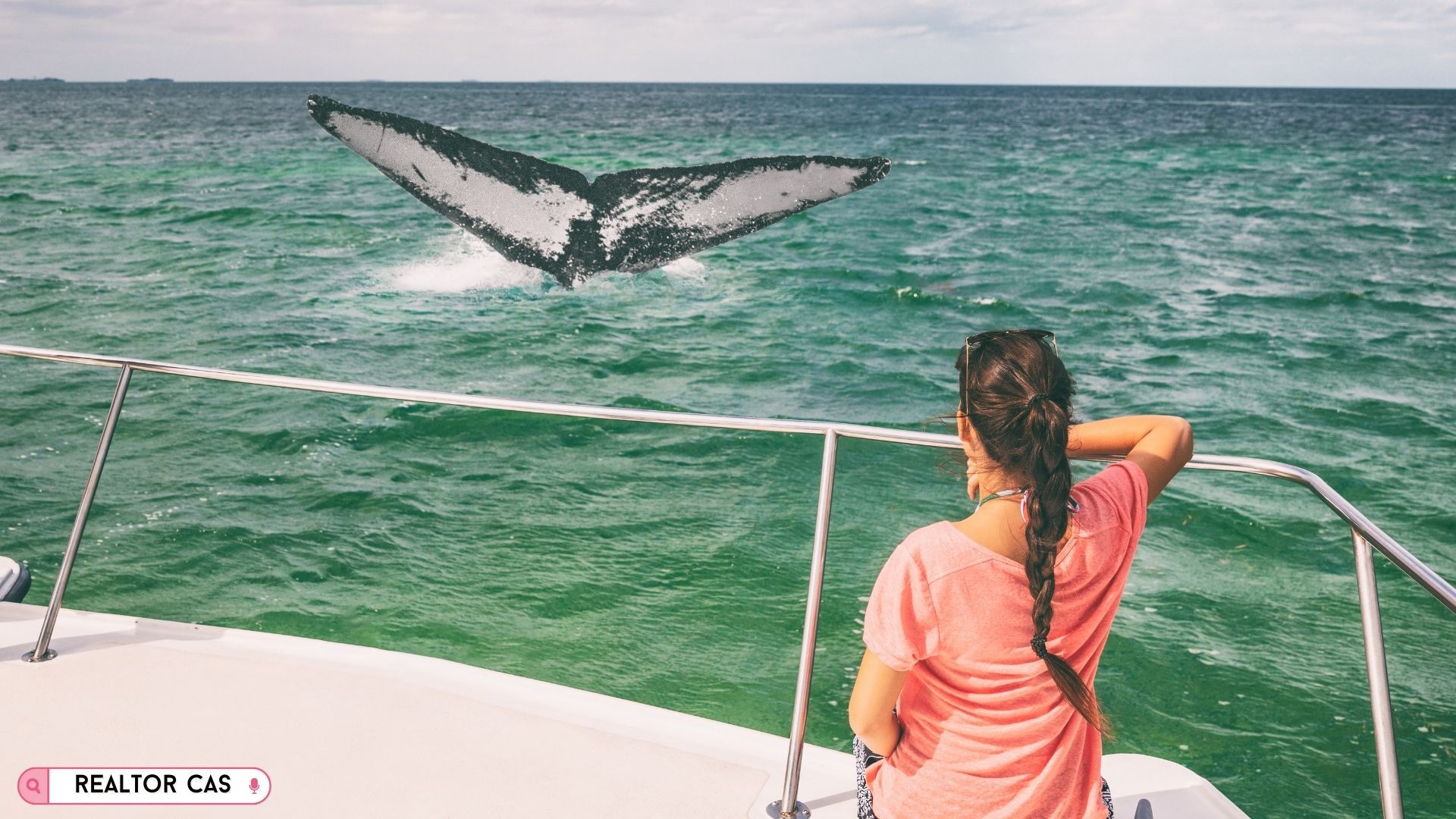
Whale watching is an unforgettable experience! Imagine standing by the ocean, feeling the salty breeze, and spotting a massive gray whale surfacing in the distance. Every year, thousands of these gentle giants migrate along the Pacific Coast, offering incredible opportunities to see them in the wild.
Whether you’re watching from shore or heading out on a boat, this guide will help you know when, where, and how to catch the best views of these amazing creatures.
Best Time for Whale Watching
Timing is everything when it comes to spotting whales. Different species migrate at different times, but here’s a general guide:
-
Spring and Summer (March – September): Best for humpback whales, orcas, and blue whales in many coastal areas.
-
Fall and Winter (October – February): Prime time for gray whales migrating along the Pacific coast to their breeding grounds in Baja, Mexico.
-
Year-Round Spots: Some locations, like Depoe Bay in Oregon and Monterey Bay in California, have resident whale populations, offering sightings all year long.
Where to Watch Whales
Not all whale-watching spots are created equal. Some locations offer front-row seats to this natural spectacle. Here are the top destinations:
Best Whale Watching Spots in Washington
🐋 Cape Flattery – The northwesternmost point of the contiguous U.S. offers breathtaking views and a high chance of spotting gray whales and orcas.
🐋 Westport – Known for excellent whale-watching boat tours and a prime spot for spotting gray whales from the shore.
🐋 Ocean Shores – A popular coastal town with long stretches of beach where migrating whales can often be seen offshore.
🐋 San Juan Islands – One of the best places in the U.S. to see orcas, as well as humpback and gray whales, especially in the summer.
🐋 Point Defiance (Tacoma) – A great spot for spotting transient orcas and other marine life in the Puget Sound area.
Best Whale Watching Spots in Oregon
🐋 Depoe Bay – The Depoe Bay Whale Watching Center is a must-visit, offering panoramic views and expert guidance.
🐋 Cape Kiwanda (Pacific City) – A stunning coastal viewpoint where gray whales often pass close to shore, especially during migration season.
🐋 Cape Perpetua (near Yachats) – A high-elevation vantage point that increases your chances of spotting whales from above.
🐋 Yaquina Head (Newport) – A historic lighthouse location with breathtaking ocean views and a great spot for whale watching.
🐋 Ecola State Park (Cannon Beach) – Ideal for those traveling from Portland, offering picturesque cliffs and easy-access viewpoints.
Best Whale Watching Spots in North America
🐋 Depoe Bay, Oregon – Known as the Whale Watching Capital of the Oregon Coast, this charming town is home to resident gray whales and a fantastic whale watching center with expert guides.
🐋 Monterey Bay, California – A deep submarine canyon attracts humpback whales, blue whales, and even orcas throughout the year.
🐋 Cape Cod, Massachusetts – A prime location for spotting humpbacks and minke whales in the Atlantic.
🐋 San Juan Islands, Washington – One of the best places in the world to see orcas, especially in summer.
International Whale Watching Hotspots
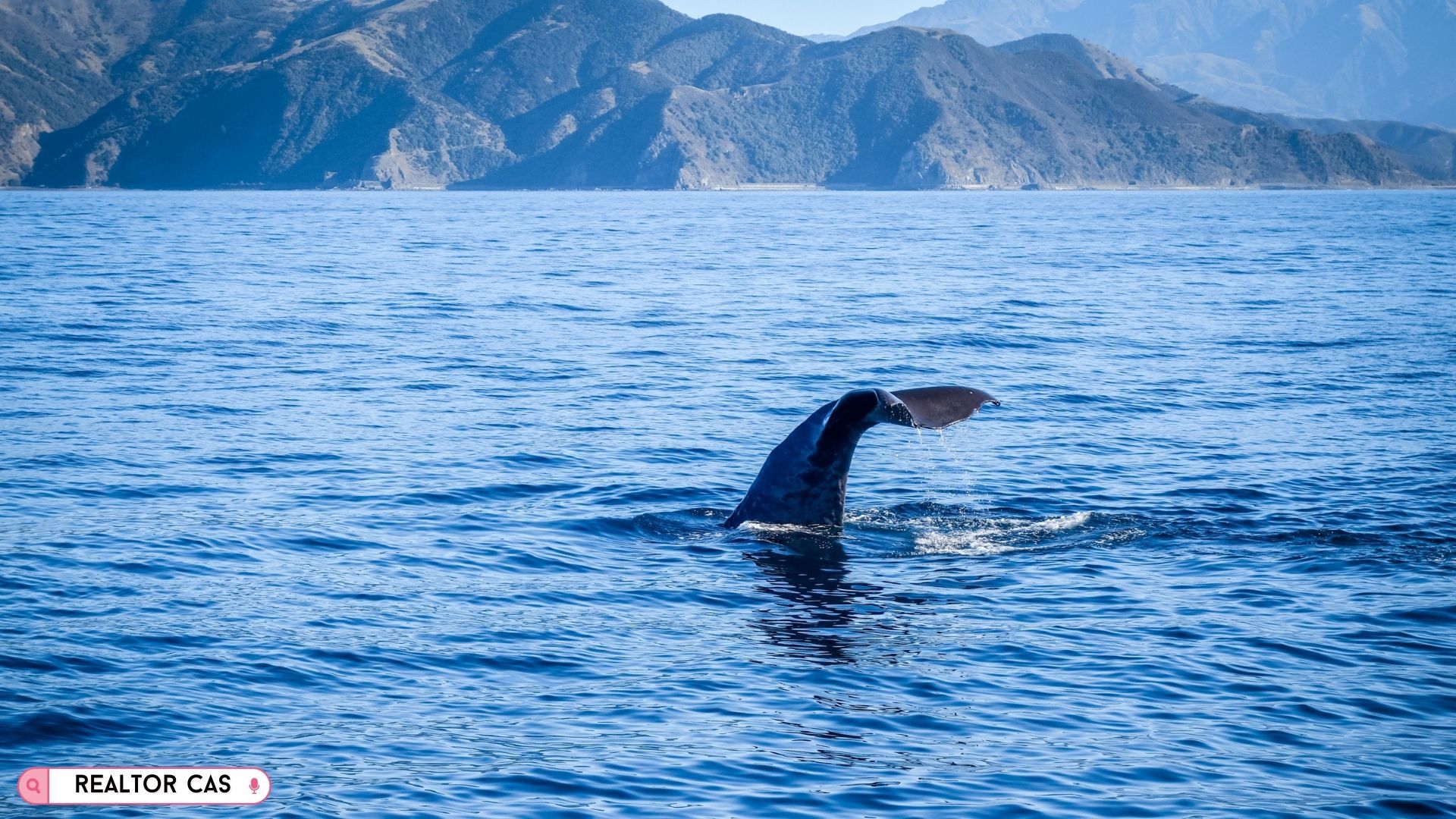
🐋 Hermanus, South Africa – Often considered the best land-based whale watching destination in the world, with southern right whales coming close to shore.
🐋 Reykjavik, Iceland – A cold-water paradise where you can see orcas, humpbacks, and minke whales.
🐋 Kaikoura, New Zealand – Home to sperm whales, dusky dolphins, and fur seals, making it a top year-round whale watching destination.
Types of Whales You Might See
Each species brings something unique to the experience. Keep an eye out for:
-
Humpback Whales – The acrobats of the sea, known for breaching and tail-slapping.
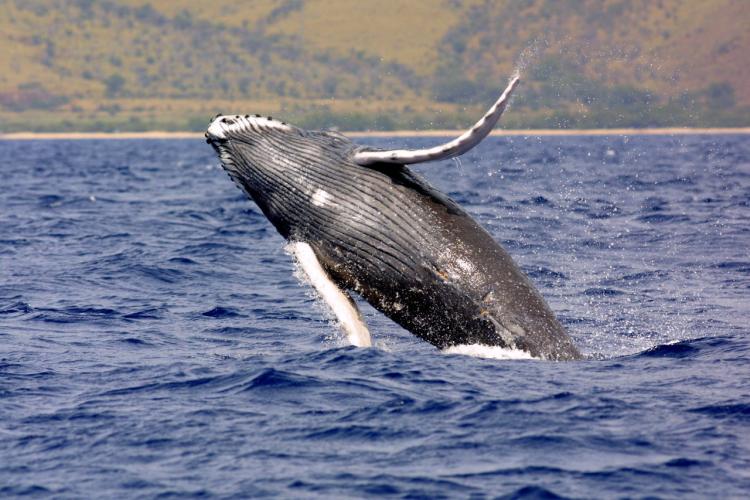 Humpback whale breaching. Credit: NOAA Fisheries
Humpback whale breaching. Credit: NOAA Fisheries
-
Gray Whales – Often spotted close to shore during migration.
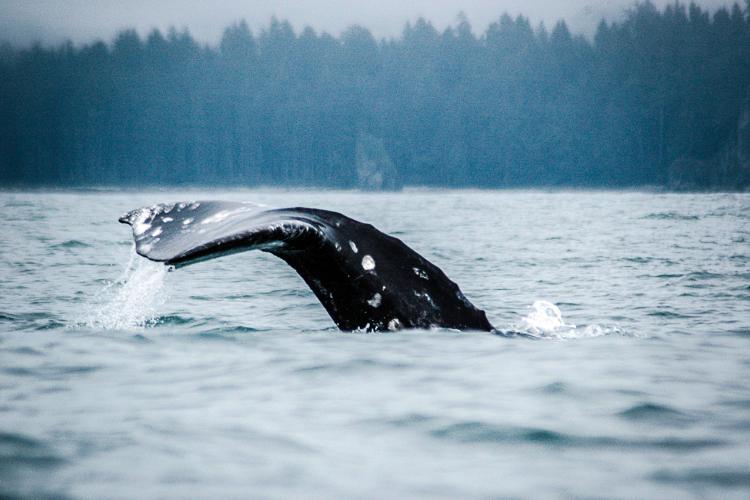
A gray whale and her calf migrate north along the California coast on their way to summer feeding grounds in the Arctic. Credit: NOAA Fisheries
-
Blue Whales – The largest animals on Earth, an absolute bucket-list sighting.
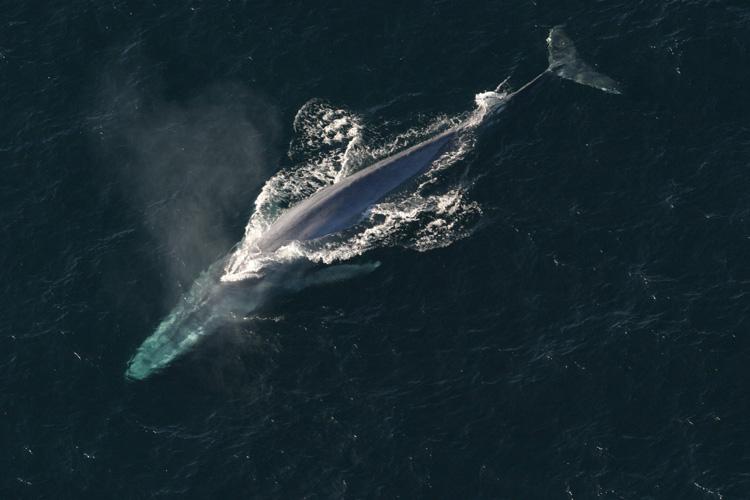 Blue whale swimming in the ocean. Credit: NOAA Fisheries
Blue whale swimming in the ocean. Credit: NOAA Fisheries
-
Orcas (Killer Whales) – Highly intelligent, often seen hunting in pods.
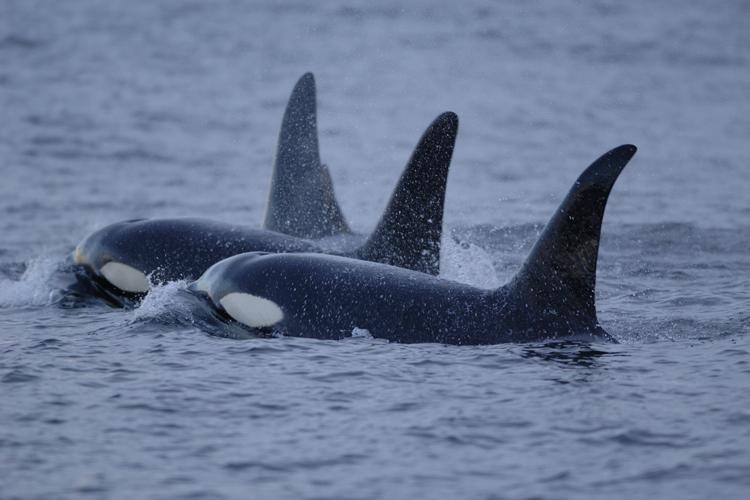 Pod of killer whales. Credit: NOAA Fisheries
Pod of killer whales. Credit: NOAA Fisheries
-
Sperm Whales – Deep divers, famous for their encounters with giant squid.
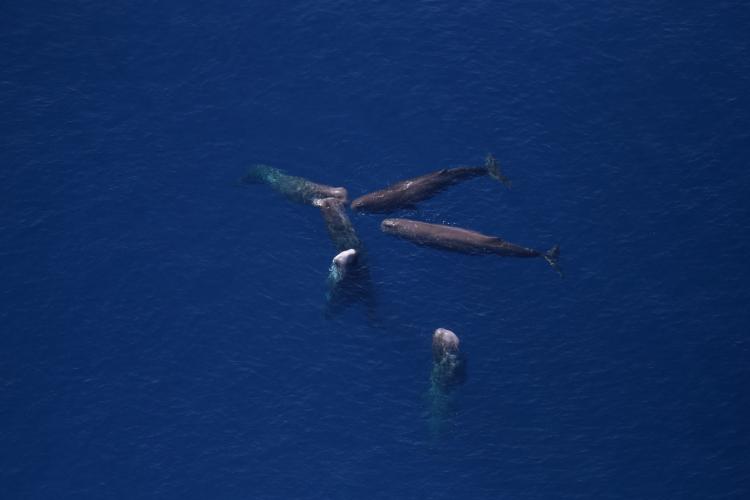 Sperm whales. Credit: NOAA Northeast Fisheries Science Center.
Sperm whales. Credit: NOAA Northeast Fisheries Science Center.
How to Spot a Whale
Your eyes need to adjust to the rhythm of the ocean, but once you get the hang of it, spotting whales becomes second nature.
✅ Look for Blow Spouts – Whales exhale in a visible mist that rises above the water.
✅ Watch for Tail Slaps and Breaches – Some species, like humpbacks, leap entirely out of the water.
✅ Scan for Dark Shapes – Sometimes you’ll spot a whale’s back or dorsal fin as it surfaces.
✅ Use binoculars – While some whales come close to shore, a good pair of binoculars will enhance your view.
✅ Be patient – Whales don’t follow a schedule, but waiting a little longer often pays off!
Best Ways to Watch Whales
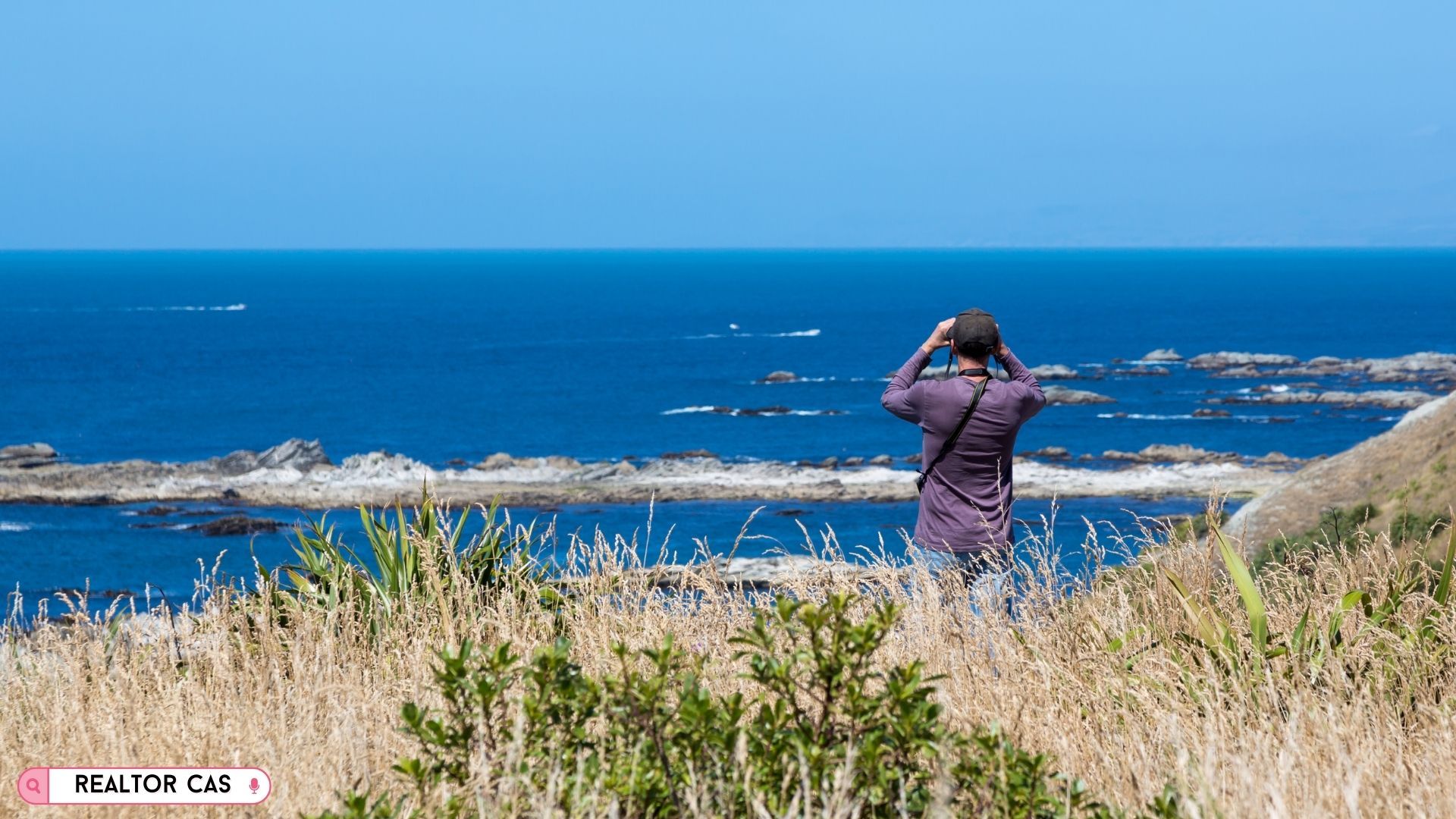
-
From Shore – Clifftop vantage points offer incredible views, especially during migration season.
-
Boat Tours – Get up close and personal with experienced guides leading the way.
-
Kayaking – The most intimate (and eco-friendly) way to encounter whales.
-
Drone Photography – Captures breathtaking aerial perspectives (where legal).
What to Bring for the Best Experience
Preparation enhances the thrill of whale watching.
Pack these essentials:
-
Binoculars – Magnifies the details of whale behavior.
-
Camera with Zoom Lens – Essential for capturing breaching whales.
-
Layered Clothing – Weather conditions change fast, especially on the water.
-
Sunscreen & Sunglasses – Protect yourself from the sun’s glare.
-
Patience – Nature operates on its own schedule, but the wait is always worth it.
Conservation and Ethical Whale Watching
Responsible whale watching ensures that future generations can enjoy these magnificent creatures.
-
Support Ethical Tour Companies – Choose operators that follow marine life protection guidelines.
-
Respect Marine Wildlife – Never chase or harass whales.
-
Reduce Plastic Waste – Protect the oceans by minimizing pollution.
FAQs About Whale Watching
How close can you get to a whale?
Regulations vary by location, but most tours stay at least 100 yards away to avoid disturbing them.
What is the best time of day for whale watching?
Morning is usually best due to calmer seas, but whales can be active at any time.
Can you see whales in the rain?
Yes! Whales don’t mind the rain, and you might even get fewer crowds.
Are there places where you can swim with whales?
Yes! Some locations like Tonga and the Dominican Republic offer ethical swimming experiences with whales.
Plan Your Whale Watching Trip
📅 Mark your calendar for the Spring Whale Watch (March 22–30, 2025).
Whether you’re watching from a cliffside viewpoint, joining a guided boat tour, or volunteering to help others, whale watching on the Oregon Coast is a must-do experience.
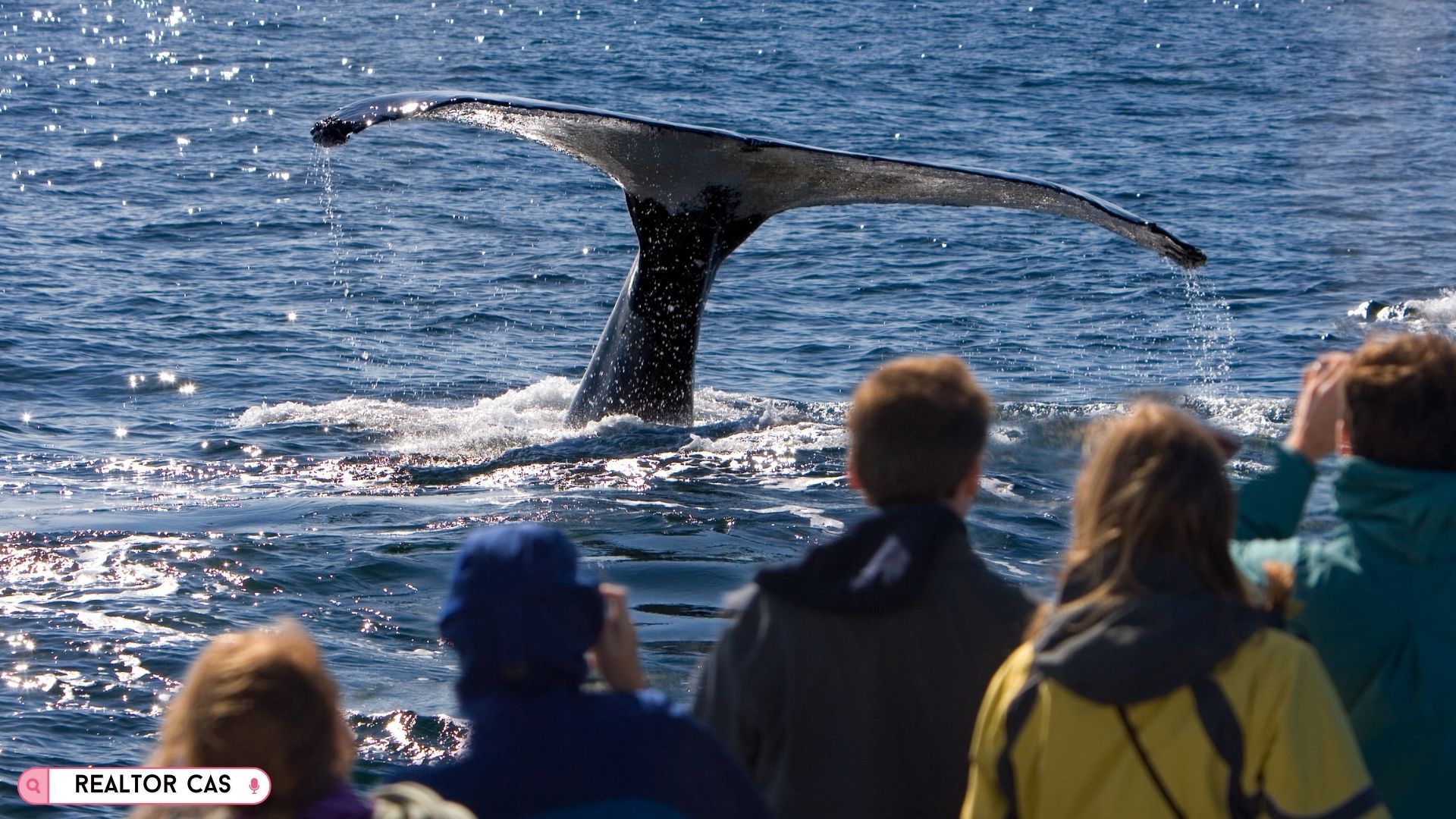
Learn More: Whale Watching Resources
For additional details on whale watching, conservation, and volunteer opportunities, check out these reputable resources:
🔗 Whale Watching – Oregon State Parks – Official site with information on migration patterns, best viewing locations, and event details.
🔗 Oregon Whale Watch – Covers whale watching history, volunteer programs, and educational resources.
🔗 Gray Whale | NOAA Fisheries – Comprehensive information about gray whales, their migration, and conservation efforts.
🔗 Safe Whale Watching on the West Coast – Be Whale Wise – Guidelines for responsible and ethical whale watching.
🔗 Oregon – The Whale Trail – Lists shore-based whale-watching sites across Oregon, with maps and expert tips.
Final Thoughts
Whale watching isn’t just a trip—it’s an experience that connects you with nature in the most extraordinary way. Whether from a rugged cliffside or a boat on open water, the thrill of spotting a whale never fades. Plan your trip, bring your camera, and get ready for an unforgettable journey into the world of these gentle giants.
Sign up for my monthly newsletter to receive expert advice, important local updates, and insider knowledge on the best ways to thrive in this unique region. Whether you're buying, selling, or simply curious about life in the Pacific Northwest, I've got you covered.
👉 Join my newsletter today and never miss a beat! Just enter your email below and get exclusive access to all things Southwest Washington. Let’s stay connected!
Frequently Asked Questions
What is the best month for whale watching in Oregon?
The best months for whale watching in Oregon are mid-December through mid-January (winter migration south) and late March through June (spring migration north). During these times, gray whales are commonly seen from the coast. Depoe Bay is a top viewing spot.
What are the best months to whale watch in Washington?
In Washington, the best whale watching months are May through September, especially for spotting orcas, humpbacks, and minkes. Summer offers the calmest seas and most frequent sightings. San Juan Islands are the prime location.
Where is the best place to see whales in the Pacific Northwest?
The San Juan Islands in Washington and Depoe Bay in Oregon are considered the best places to see whales in the Pacific Northwest. These areas offer both land-based and boat-based whale watching opportunities. Summer is peak orca season in the San Juans.
Where and when are you most likely to see orcas in Oregon?
Orcas are occasionally seen off the Oregon Coast, especially near Depoe Bay or Newport, but sightings are rare compared to Washington. The best chance is in April through June during the spring migration. Oregon’s coast is better known for gray whale viewing.
Where is the best place to watch whales on the Oregon coast?
Depoe Bay is the top spot, known as the "Whale Watching Capital of the Oregon Coast." It offers a dedicated whale watching center, high coastal cliffs, and frequent sightings. Boats also depart regularly from the harbor for close-up views.
What time of day are whales most active for whale watching?
Whales can be seen any time of day, but mornings typically offer calmer seas and better visibility. Early daylight and late afternoon are often best for lighting. Boat tours usually run mid-morning to early afternoon for optimal conditions.
What month can you see orcas in WA?
Orcas are most commonly seen in Washington from May through September, with July and August being peak months. The southern resident orca pods frequent the Salish Sea and San Juan Islands during this time. Transient orcas may also appear year-round.
How long is the drive from Seattle to San Juan Islands?
The drive from Seattle to the San Juan Islands involves a 1.5- to 2-hour drive to Anacortes, followed by a 1-hour ferry ride to Friday Harbor or other island ports. Allow for at least 4 hours total, depending on ferry schedules. Reservations for ferries are strongly recommended in summer.
What month are whales most active?
Whale activity varies by species, but in the Pacific Northwest, March–June (northbound migration) and December–January (southbound migration) are peak times for gray whales. Orcas are most active and visible in summer. Choose your time based on the type of whale you hope to see.
Where is the easiest place to see whales?
The easiest land-based whale watching in the Pacific Northwest is from Depoe Bay, Oregon or Lime Kiln Point State Park on San Juan Island, WA. Both offer frequent sightings without needing a boat. Boat tours, however, greatly increase your chances anywhere along the coast.
Categories
Recent Posts
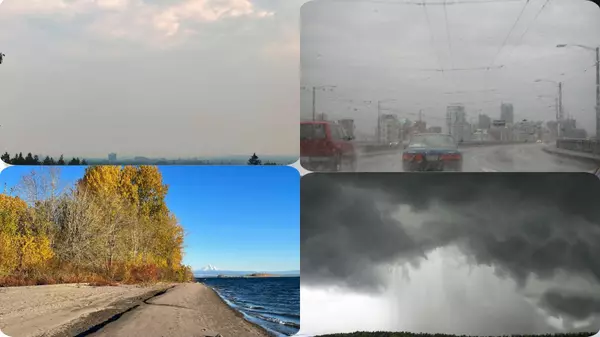


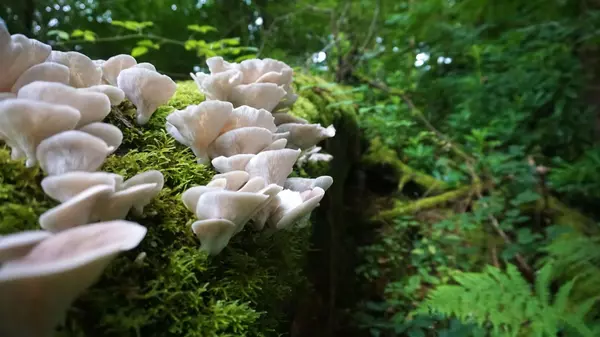

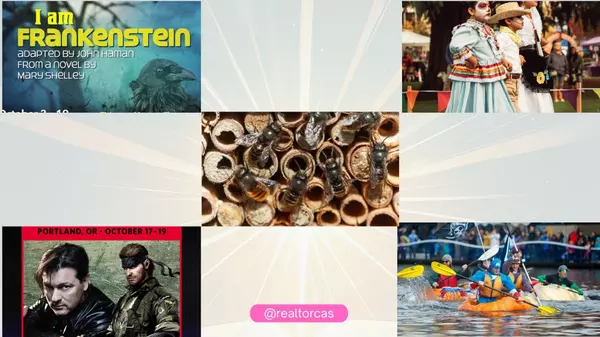




GET MORE INFORMATION

Cassandra Marks
Realtor, Licensed in OR & WA | License ID: 201225764
Realtor, Licensed in OR & WA License ID: 201225764
